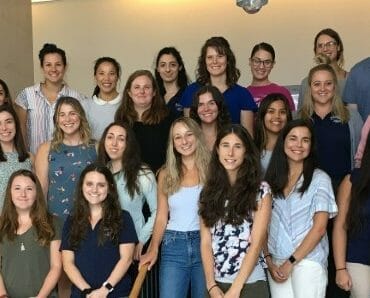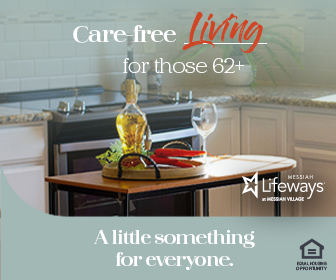One of the biggest challenges that caregivers of an aging parent or loved one face is choosing the right place to move them when living at home is no longer feasible, practical, or safe. Plus, many caregivers struggle with the idea of allowing someone else to take care of Mom. However, as hard as that is to consider, it’s often the best remedy for both their sake and yours, especially if your loved one has significant memory and/or cognitive impairment. But once you come to an understanding that a change needs to take place, the next step is finding a place they can call home and that you can feel good about, and a place that meets their specific needs.
Within the personal care and assisted living landscape, the need for specialized services like memory care continues to grow. But like much of senior care, the terminology and intricacies of certain types of care can be confusing and often overlap. First, personal care and assisted living are not exactly one in the same. They differ a bit from state to state, however from a wide angle, the two look very similar. Here in Pennsylvania, Personal Care Homes (PCH) and Assisted Living Residences (ALR) are licensed separately by the Department of Health.
In general both PCH and ALR provide:
- Three meals a day
- Assistance with activities of daily living such as bathing and dressing
- Medication and healthcare monitoring
- Housekeeping
- Laundry services
- Activities
- Some transportation
ALR differ by:
- Requiring slightly higher staffing ratios
- Requiring additional training of certain staff
- The bricks and mortar must adhere to larger room sizes and shared spaces, and require private bathrooms
- Because of the enhancements listed above, they also tend to be more expensive
A Closer Look at Personal Care
As you delve a little deeper into Personal Care Homes, you’ll discover state licensure helps to operationalize and regulate the care and services that are provided along with the environment in which residents live. This includes round the clock staffing, accommodation and square footage requirements, certain policies and procedures, and a standard medical evaluation required for move in. As mentioned earlier residents can receive assistance with dressing, bathing or grooming, monitoring of medications and overall health. Also included are the daily chores that become challenging like cooking three meals a day, housekeeping, and laundry. Another important aspect is the opportunity for socialization and activities on a daily basis. Isolation and boredom can be a problem for many older adults who live alone. This is especially true for those who give up driving or start to see their friends and peers either moving or passing away.
While all these services and amenities mentioned are much needed or desired, there is still a fair amount of autonomy and independence that residents maintain in a standard Personal Care Home. For example, some personal care residents may still drive. You may ask, “Why would they need personal care?” A good example is a widower. Not to generalize, but cooking three healthy meals a day, and keeping up with housekeeping and laundry could be a challenge for him. Plus, he may need occasional reminders about taking his medications or about upcoming doctor appointments. He may also be bored and lonely. This gentleman presents a need for some moderate help and oversight with a need for socialization and activity, but not heavy custodial care.
Our next example is a woman who is still very competent with very little memory or cognitive impairment. She’s socially engaged and enjoys lots of activity. But unlike the widower, this person has lots of physical limitations and walking long distances or flights of steps may be prohibitive, due to degenerative joint disease or severe osteoarthritis. She is also no longer driving. Getting dressed, making her bed or even opening a medicine bottle is difficult for her. She just needs a helping hand throughout the day. Finally, she likes the fact that if something were to go wrong, staff is there to help 24 hours a day.
These are both prime examples of older adults in need of personal care. Click [here] for a full list of what Personal Care Homes can provide in Pennsylvania.
Memory Care Provides Another Layer of Support
Above, we examined two scenarios that a Personal Care Home could accommodate. Now just imagine these two individuals also having a dementia diagnosis such as Alzheimer’s Disease, with significant memory and cognitive decline. At this stage, the basic and progressive personal care services and amenities must be more specialized and comprehensive due to failing memory, cognition, decision making, and self awareness.
The programming, staffing and even the physical layout of memory care units are designed specifically for individuals suffering from Alzheimer’s Disease and other forms of dementia. One of the most significant and noticeable differences is that memory care offers a secure living environment. Elopement, exit seeking, or just plain curiosity can be very problematic for those with dementia. We’ve heard too many stories of people who are suffering from dementia going outside unaccompanied and underdressed for the weather, and then disaster strikes. While it may initially be hard to accept that your loved one is in need of a “locked” environment, these tragic stories remind us of their value.
On the brighter side, these communities also offer large, open, and clutter-free environments with lots of natural light and windows. This helps with mood and well-being – as open environments tend to make us feel more relaxed and peaceful. Many also offer secure outdoor space or plenty of indoor walking space, which can satisfy the desire to roam around and “explore.” Plus, private rooms are pretty universal in these types of communities, which is a great feature for most anyone. Many also feature shadow boxes outside each room so that residents can fill them with pictures and memorabilia, which helps them identify their room.
Next, the care that is provided and the activities that are offered are specific to memory care. As mentioned above, personal care provides a lot of hands on care as needed, such as help with tasks such as getting dressed or taking a shower, meal prep, medication monitoring, and ambulation assistance. But, as those who have ever cared for a loved one with dementia know, simple tasks such as dressing or getting ready for an appointment can be a tedious, time-consuming challenge, compounded by agitation or confusion. The constant reminding, cueing and redirecting that caregivers must do on a daily basis can be intense. Yet, staff working within a memory care program are trained for, understand and appreciate the delicate nature of a dementia diagnosis and the extra time and patience it takes to care for them. Memory care staff are also trained to manage difficult dementia behaviors and symptoms in a kind, compassionate manner, using specific dementia care techniques and behavior management, thus reducing reliance on antipsychotic medications.
Activities are also tailored to address the unique needs of individuals with dementia, and their level of memory and cognitive impairment. This may include programming such as:
- Music therapy/programming – Research suggests that listening to music can enhance our memory, lower stress levels, reduce agitation, and even improve cognition
- Art and crafts- Painting, drawing, and crafting allow freedom of expression and a chance to exercise fine motor skills
- Pet therapy – Interaction with animals an help improve physical health, lower blood pressure, and encourage activity
- Sensory stimulation – Stimulating one’s senses, especially touch and smell can also can have a calming effect and help stimulate one’s memory and cognition based on previous experiences
- Storytelling, reminiscence therapy and activities – Each can help jog older memories and can stimulate recollection and group participation
- Physical activity and exercise – This is important for all seniors, but for those with a dementia diagnosis, their physical health is often intact so getting a proper amount of exercise is especially helpful in maintaining their physical fitness
Finally, the structure and timing of a well-planned memory care activity program are vital. The right mix of activities, frequency, and time of day are important. Activities cannot simply stop at the end of a normal work day or just happen a few times a day. The program must be robust yet flexible to meet the individuals needs of the residents.
Lastly, while all standard Personal Care and Assisted Living programs have elements of memory care, like medication reminders and reminiscence activities, a true memory program stands apart from these traditional settings.
For more information about Personal Care and Memory Care at Messiah Lifeways, please visit www.messiahlifeways.org/care-options/personal-care/





